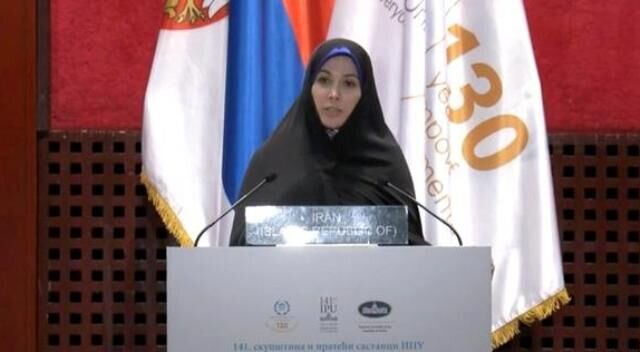Iranian MP: Washington’s economic terrorism violates human rights

TEHRAN – The U.S. unilateral economic sanctions against independent nations is nothing but a blatant violation of human rights, head of the Iranian parliamentary delegation who attended the Inter-Parliamentary Union (IPU) conference in Belgrade has said.
“Washington’s approach of imposing sanction as a tool to materialize its objectives, has created serious concerns over violation of human rights,” Fatemeh Hosseini said.
“Today, among the founders of recognized institutions of international order, only the U.S. believes that it is capable of achieving interests via ignoring and violating fundamental principles of international law and human rights aimed at guaranteeing its own security at the price of destroying the other nations’ security,” the Iranian MP pointed out.
“Use of illegal tool of imposing economic sanctions or economic terrorism… to achieve the White House objectives has caused serious concerns in regard human rights violations,” Hosseini lamented.
“Negative impacts of such sanctions on ordinary people’s life include lack of access to sufficient food, necessary medicine and healthcare services,” she further said.
She also voiced regret about inability and indifference of political and legal institutions to counter such moves, calling for reforms in international bodies.
In an article earlier this month, the Washington Post said the U.S. sanctions on Iranian financial firms, including a bank that until recently handled most payments for Iran’s imports of humanitarian goods, were having a chilling effect on foreign companies that helped supply medicine and other medical products.
The far-reaching sanctions on Iranian financial firms re-imposed about two weeks ago could endanger the flow of humanitarian goods as foreign banks and outside suppliers abandon business ties with their partners in Iran, analysts and experts warned.
In recent months, some European banks refused to process payments even from Iranian firms that were exempt from sanctions out of fear of U.S. penalties, according to people familiar with the transactions.
MJ/PA
Leave a Comment